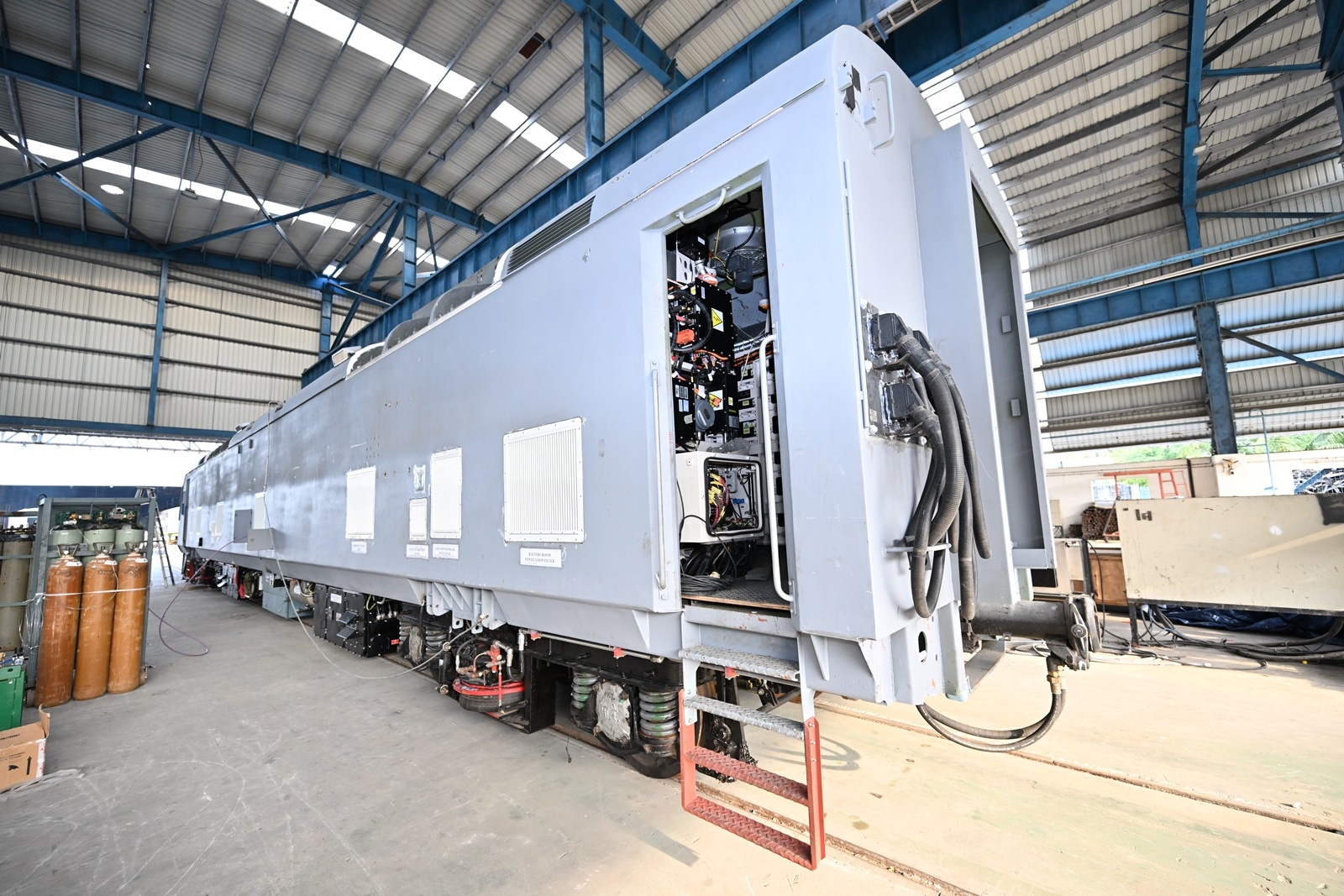Indian Railways successfully tested the first hydrogen-powered coach or driving power car earlier this week at its Integral Coach Factory (ICF) in Chennai. This marks a key milestone in the national transporter’s quest to build India’s first hydrogen-powered train, something only a few railways in the world have tried, with a bulk of the projects still in the trial phase.
The ICF project is significant for the Railways as it is one of the key players in India’s mission to reduce greenhouse gas emissions and increase the share of renewable energy in its energy mix. An increased use of hydrogen, which is a cleaner fuel, will further reduce dependence on fossil fuels.
Officials said that the project has reached the final stage, wherein testing of various equipment is being done before hydrogen-powered trains are pressed into commercial service.
What is the project?
Indian Railways’ Northern Railway zone has undertaken this project which began in 2020-21. The project has two major components. First, the conversion of two conventional 1600 HorsePower (HP) diesel power cars into hydrogen fuel cell-powered traction system, and second, setting up a hydrogen storage and fuelling facility at Jind in Haryana.
The total cost of the project is approximately Rs. 136 crore. The primary design, validation, and testing is being undertaken by Indian Railways’ Research Design & Standards Organisation (RDSO).
A senior official of the Ministry of Railways said that the hydrogen train project was conceptualised for conversion of a 10-coach diesel-electric multiple unit (DEMU) into a hydrogen-powered multiple unit, with two 1600 HP Power cars. With a train length of 10 coaches, it will have a capacity to carry more than 2,600 passengers.
It has been planned to operate the hydrogen train between Jind and Sonepat stations of Northern Railway in Haryana, two round-trips of 356 km. The hydrogen storage and fueling facility at Jind will have a storage capacity of 3,000 kg of Hydrogen.
Story continues below this ad
 It has been planned to operate the hydrogen train between Jind and Sonepat stations of Northern Railway in Haryana, two round-trips of 356 kms.
It has been planned to operate the hydrogen train between Jind and Sonepat stations of Northern Railway in Haryana, two round-trips of 356 kms.
How will it work?
Hydrogen fuel technology is still an emerging field in Railways. There are many challenges and safety concerns, too, as hydrogen is a highly flammable gas. As the project involves the retro-fitment of two diesel-powered cars into Hydrogen fuel cell-powered cars, each power car will carry 220 kg of hydrogen, stored in specially designed cylinders at 350 bar pressure. The mounting structure of hydrogen cylinders and fuel cells is critical and for that, multiple rounds of testing are on.
Hydrogen is the lightest element. It is colourless, odourless, tasteless, and highly flammable. Due to its typical characteristics, safety remains a point of caution while dealing with hydrogen. Officials said that to minimise the risk, Railways have done computational fluid dynamics (CFD) studies, wherein the worst cases of hydrogen leak and other failure modes are considered with continuous monitoring.
The official further said that an extensive testing of all in-house equipment like vehicle control system, boost converter, traction converter, auxiliary converter, and traction motor have been successfully completed. The hydrogen train will include safety features such as pressure relief valves, leak detection, flame detection sensors, temperature detection systems, and scientifically designed ventilation.
An independent third-party safety auditor – ‘Technischer Überwachungsverein Süd’ (TUV-SUD) of Germany has been roped in for ensuring the safety standards. The engineering design and conversion work is being undertaken at ICF, Chennai by Hyderabad-based Medha Servo Drives.
Story continues below this ad
The hydrogen fuelling facility
The 3,000-kg hydrogen fuelling facility at Jind will provide the required hydrogen for the operation of the hydrogen-powered train. The storage capacity has been divided into two separate storage spaces — 2320 kg at low pressure and 680 kg at high pressure.
The facility will be operated and maintained in accordance with the standards and specification of Petroleum Explosives Safety Organisation (PESO), a nodal agency under the Department for Promotion of Industry and Internal Trade (DPIIT).
Officials said that Northern Railway is undertaking the associated infrastructure works such as power supply, road construction, firefighting tank, etc, to make the facility operational.
.
